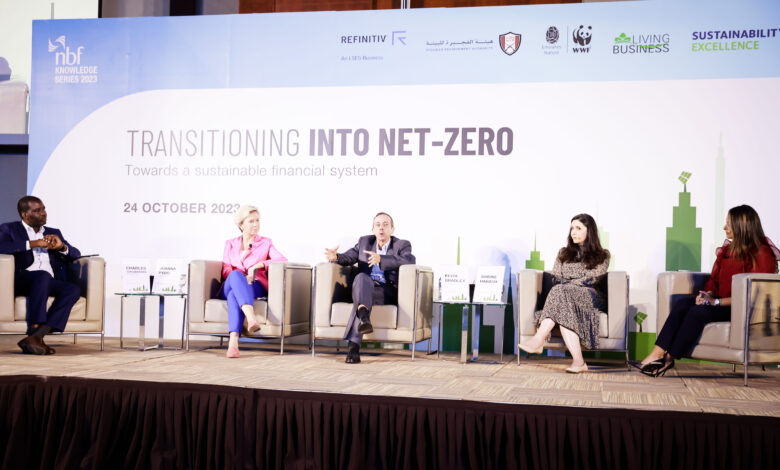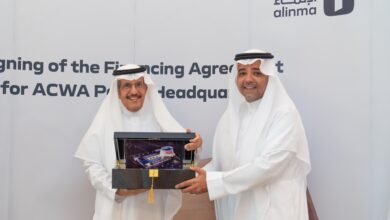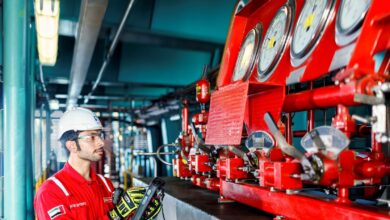
The National Bank of Fujairah (NBF) has hosted the latest in its long-running series of knowledge-sharing events. The two autumn events, which were attended by over 200 participants, showcased NBF’s pioneering sustainable and Islamic finance offerings, and ensured customers and delegates were kept abreast of developments in sustainability and the transition to net-zero.
Countries in the Middle East are keen to be a part of the global response to climate change, with the UAE, Bahrain, Saudi Arabia, Oman and Kuwait all pledging to reach net-zero carbon emissions by the middle of the century. With the UAE hosting COP28 over the coming weeks, the region is positioning itself at the forefront of the net-zero transformation, firmly committed to boosting clean energy generation and supporting decarbonization efforts.
Both events kicked off with an up-to-date global and regional economic outlook from Nikita Pavlov, EMEA Director at the London Stock Exchange Group. Pavlov gave a snapshot of key global indicators including headline interest rates, oil prices, consumer price indices and reserve currencies, before considering the challenges in the current market. He sees these as the slowing rate of global GDP growth, key rates in developed markets, low activity in M&A and capital markets, high volatility in commodities markets, and climate-related issues. In terms of the opportunities this throws up for the UAE and wider region, companies that deliver on ESG commitments are increasingly attractive to those looking to invest in the region, as are the region’s currencies for those looking for a proxy for hard reserve currencies like the US dollar or euro.
At the first event, held in Fujairah under the theme ‘Transitioning into net-zero’, discussions then turned to the UAE’s vision for COP 28, with Shirine Habash, Associate Manager – Conservation Outreach at Emirates Nature-WWF taking participants through COP28, ESG and the implications of both for businesses. Having laid out the themes of COP28, Habash ran through the risks for businesses arising from climate change, and gave participants an overview of the various ESG reporting frameworks available to help guide businesses in implementing their ESG strategies.
In the panel session that followed, panellists considered the best ways in which business in the region could boost their ESG performance, from internal capacity building to water saving measures – and accessing sustainable finance, where the commercial terms are linked to the customer’s ESG performance.
At the second event in Dubai, under the theme ‘Islamic finance: Innovative sustainable solutions’, experts in Islamic finance discussed the opportunities it offers to mobilise funds for climate-friendly projects. Mustafa Adil, Head of Islamic Finance, Data & Analytics, London Stock Exchange Group pointed out that an estimated investment of between $4 and $5 trillion annually is needed to achieve the transition to net zero, and the only way to secure this is to shift and mobilise existing financial infrastructure, lending and investment activities towards greener projects. This is where Islamic finance, a pivotal part of the financial services industry in many key emerging and frontier markets, comes in, and is one reason behind a huge growth in ESG and green sukuks in recent years.
This growth notwithstanding, provision of sustainable Islamic finance remains fragmented across different markets, thanks to varying government priorities. According to Adil, as guidance and guidelines around implementation and reporting become more standardised on a global basis, the growth of sustainable Islamic finance should accelerate further. As the sustainable Islamic finance sector develops, the role for banks like NBF is to support companies in reaching the level where they are eligible for sustainable finance.



